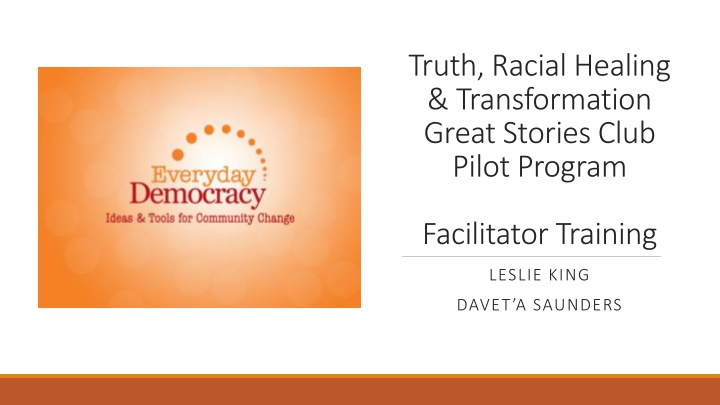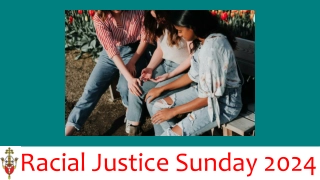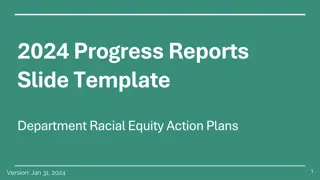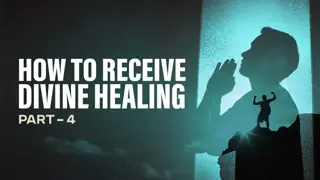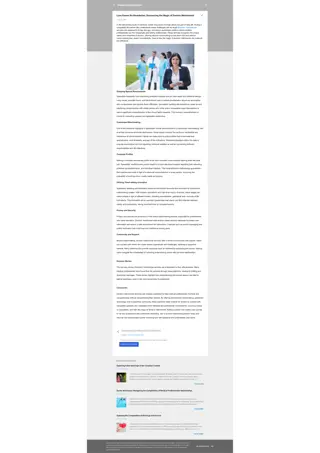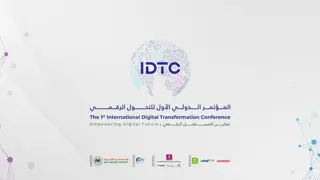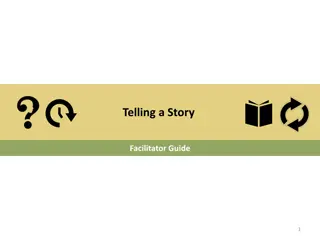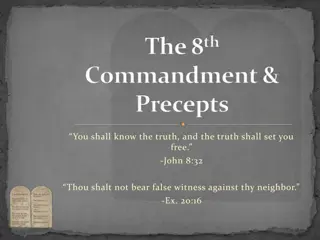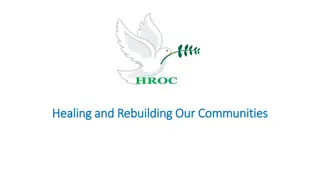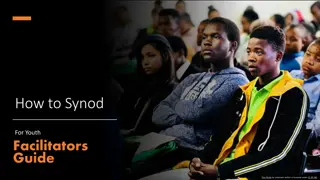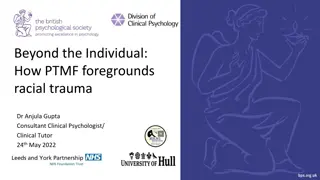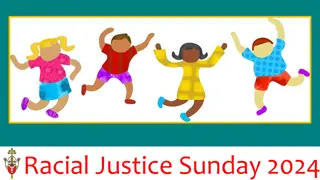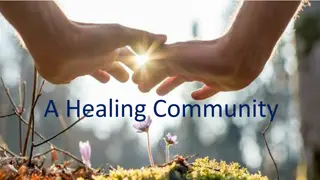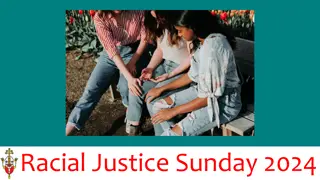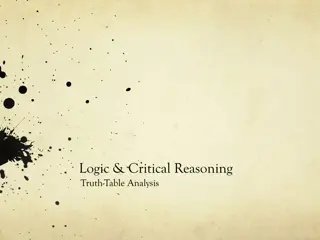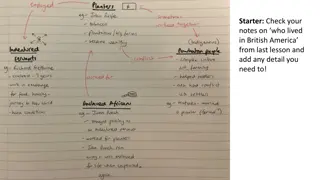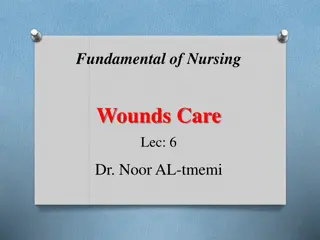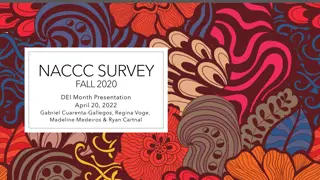Facilitator Training for Truth, Racial Healing & Transformation Great Stories Club
Experience the comprehensive training program designed for facilitators of the Truth, Racial Healing & Transformation Great Stories Club. Explore dialogue techniques, group agreements, and community dialogue processes in a supportive environment to foster open and honest discussions on key social issues. Enhance your facilitation skills and deepen your understanding of racial equity topics to drive positive community change.
Download Presentation

Please find below an Image/Link to download the presentation.
The content on the website is provided AS IS for your information and personal use only. It may not be sold, licensed, or shared on other websites without obtaining consent from the author.If you encounter any issues during the download, it is possible that the publisher has removed the file from their server.
You are allowed to download the files provided on this website for personal or commercial use, subject to the condition that they are used lawfully. All files are the property of their respective owners.
The content on the website is provided AS IS for your information and personal use only. It may not be sold, licensed, or shared on other websites without obtaining consent from the author.
E N D
Presentation Transcript
Truth, Racial Healing & Transformation Great Stories Club Pilot Program Facilitator Training LESLIE KING DAVET A SAUNDERS
Todays Agenda Welcome and Introduction Break Overview of the Agenda Dialogue Fishbowl and Debrief Expectations Facilitation Skills Activity Group Agreements Working Lunch Introductions Practicing Dialogue Process/Review of the Discussion Guide Dyad Exercise Evaluation Everyday Democracy and the Facilitation Process/PowerPoint Presentation Closing Remarks and Next Steps
Goals for Training Purpose of Facilitator Experience To provide a realistic circle experience To explore and express personal opinions about the issue To utilize and develop facilitation skills in action To develop a better understanding of the discussion topic
Group Agreements What could get in the way of us having open and honest dialogue? What group agreements can we establish so that it is safe to be open and honest?
Introductions Introduce yourself and share how you got your name. Who named you? Do you like your name?
Dyads Expectations Choose a partner and face each other. What are your concerns or hesitations about facilitating dialogues on racial equity?
Community Dialogue- to-Change Process
Goals of Community Dialogue-to-Change To deepen participant s understanding of an issue by focusing on values underlying opinions shared. To move participants from dialogue to strategic action and community change.
Issues Poverty Immigration Education Mental Health Family Violence Police Community Relations Racial Equity Community Health Infant Mortality
POLITICAL DEBATE vs. DEMOCRACTIC DIALOGUE Oppositional Collaborative Goal = winning Goal = common ground Critique Introspection Being right Being open
Principles Relationships Inclusion Power
RELATIONSHIPS & TRUST Develop a better understanding about issues of race, equity, class, etc. Meet in affinity groups (i.e. same ethnicity, gender, sexual orientation) prior to joining a mixed group process. Develop awareness of personal biases and misconceptions.
Organize for INCLUSIVE PARTICIPATION Form a diverse organizing committee that is racially/ethnically diverse; includes other kinds of diversity relevant to the issue; and includes formal and informal leaders. Name issues of power and privilege and decide how they will be handled. Frame issues in ways that create a space for a diverse group of people with relevant experiences and perspectives. Create accessible materials (use visuals, everyday language, no jargon). Offer culturally appropriate translations.
Share DECISION-MAKING POWER Establish decision-making (i.e. consensus, voting, etc.) and group norms that the group agrees with and that encourage equitable processes and action outcomes. Establish clear links between dialogue process, decision-making, and power. Ensure that key decision-makers reflect diversity of the group.
Making it Happen Organizing Dialogue Action Plan for Action Facilitator Training Work On Actions Action Forum Set Goals Recruit Participants and Facilitators Kick Off
Neutral Facilitator Small Groups Dialogue Circles People from Diverse Background s Discussion of a range of views
Process Two Trained Facilitators Consecutive weeks Discussion Guide Everyday Democracy Discussion topics include: Connecting with the community Understanding the challenges facing our community Consider action options: building on strengths Making a difference: setting priorities for action
Benefits People have a chance to be heard New relationships form to strengthen the community Community life improves New leaders emerge Working together yields better ideas Communities make progress on tough issues
Benefits Talking together without confrontation Finding out what people really think Reaching out to excluded people Mobilizing citizens to take action Helping citizens understand complex issues
Outcomes from Dialogue Circle Programs Changes in individual behavior and attitudes New relationships, networks and collaborations Changes in public policy Changes in institutions
Facilitator Job Description Facilitator Job Description In a dialogue circle, the facilitator In a dialogue circle, the facilitator Manages the discussion. Does not offer his/her opinion. Does not present him/herself as an expert on the issue. Helps the group set ground rules and stick to them. Creates opportunities for everyone to participate.
Facilitator Job Description Facilitator Job Description continued continued Brings in points of view that haven t been talked about. Helps to clarify the discussion and keep it focused. Summarizes key points, or asks others to do so. Helps group members identify areas of agreement and disagreement.
Good Dialogue Circle Facilitators Good Dialogue Circle Facilitators are self aware; they know their own strengths, weaknesses, hooks, biases, and values. are able to put the group first. have a passion for group process and the various ways groups work together. appreciate all kinds of people. are committed to democratic principles.
Key Facilitation Skills Key Facilitation Skills Reflecting Feeding back the content and feeling of the message. Let me see if I m hearing you correctly Clarifying Restating an idea or thought to make it clearer. What I believe you re saying is Summarizing Stating the main thoughts concisely. It sounds to me as if we ve been talking about a few major themes
Key Facilitation Skills Key Facilitation Skills continued continued Shifting Focus Moving from one speaker or topic to another Thank you, John. Do you have anything to add Jane? We ve been focusing on Views 1 and 2. Does anyone have strong feelings about the other Views? Using Silence Allowing time for reflection by pausing between comments Using Non-Verbal and Verbal Signs Combining body language and speech to communicate For example, use eye contact to encourage or discourage behaviors in the group. Be aware of cultural differences.
The Importance of Neutrality The Importance of Neutrality Act as if you are neutral; practice neutrality. Encourage and affirm each person. Explain your role. Be aware of your own unconscious behaviors. Resist the temptation to step out of the role of facilitator. Thanks to the RKI Facilitators Working Guide
Facilitation Challenges Facilitation Challenges Quiet participants Silence Talkative or domineering person Lack of focus Misinformation Lack of interest Tension or conflict
Co Co- -Facilitation Facilitation Pairs experienced facilitators with trainees Models diversity: gender, age, race, religion, organization Allows for shared planning and debriefing Matches complementary skills Builds larger facilitator pool in community
The Art of Recording The Art of Recording Capture big ideas and themes, not every word. Use the words of the speaker as closely as possible. Be careful not to alter the intended meaning. Check with the speaker or the group to make sure your notes are correct. Write neatly so everyone can read the notes. Create a sheet called Parking Lot. Capture or park ideas that come up in the conversation that the group wants to return to later.
A Typical Dialogue Circle Session A Typical Dialogue Circle Session Welcome and Introductions Ground Rules Discussion Summary and Common Ground Evaluation
Group Agreements Group Agreements Group agreements are a useful tool for creating a safe space for productive conversation. Helps to create an atmosphere of mutual respect and collaboration. Enables more cooperation within the group Empowers the group to collectively determine what rules will guide the conversation. Acts as a reference point for dealing with conflict.
Group Agreement Creation Group Agreement Creation Propose group agreements then seek additions, amendments and consensus Ideastorm around the word 'respect' and use that as the basis for agreement within the group. What would make me feel respected in this workshop? Other words that might be useful as well as, or instead of, 'respect' are 'safety' and 'co-operation'. Post Group Agreements on wall with flipchart paper as provided.
Examples of Group Agreements Examples of Group Agreements Be respectful and honest. Share air time. One person speaks at a time. Speak for yourself, not for others. Agree to disagree. If you are offended, say so, and say why. Don t take it personal. What is said in the group stays here, unless everyone agrees to change that. (Vegas rule)
Contact Information Leslie King mail@lesliekingconsulting.com (434) 420-0612 Davet a Saunders davetasaunders@gmail.com (804) 216-2560
